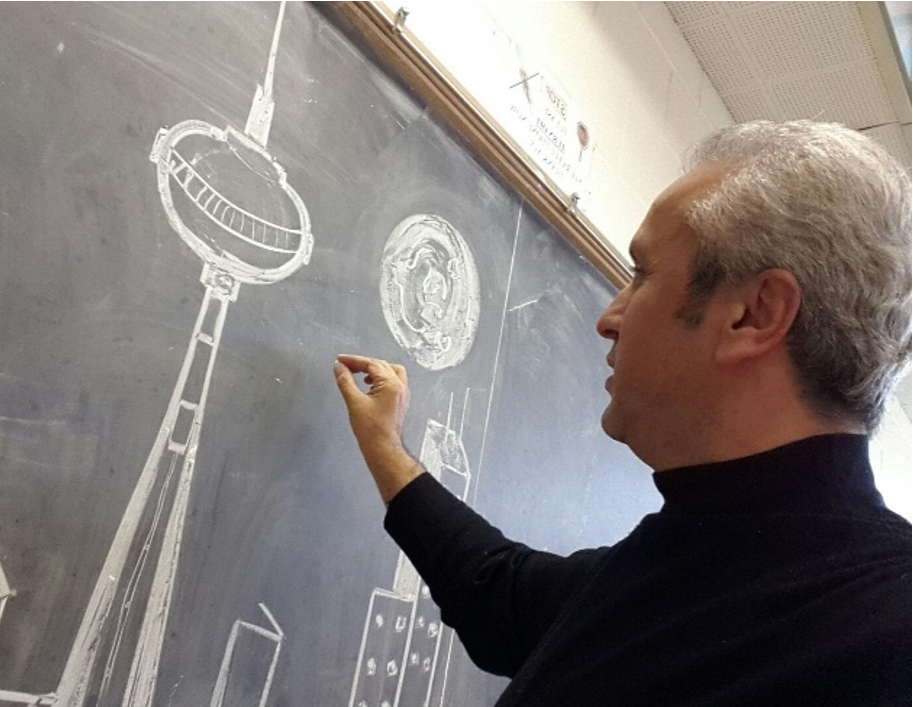Love of Learning
Don’t Let It Stop You!
I am shy. I think a lot of people have some degree of shyness, but for some of us, it can be crippling. Now that I am older, I am much more relaxed and comfortable in the world, and I am not nearly as uptight as I used to be. I am much more able to see myself and where I fit in, in a more objective, big-picture type of context.
However, when I was younger, I struggled with extreme anxiety when faced with new situations, meeting new people, participating in activities involving people I didn’t know well, in fact many of the social situations we have to deal with every day. Even struggling to fit into a crowded subway car was difficult.
I like people, but it takes me time to relax around people I have never met before. I need to get to know people before I can open up. Social gatherings always found me sitting by myself in a corner somewhere at a complete loss of what to say to anyone. I wanted to join the party, but I didn’t know how. The few times I threw myself out there and tried to talk to someone, it was so awkward for all concerned, I usually ended up leaving, which just reinforced my anxiety for the next social gathering.
As a working adult with two small children, I decided to go to university part time and earn a degree in English literature. I loved to read, and going to back to school and studying English was something I wanted for myself so badly. It was more than loving to read – I love language. I love words. I love that writing, like music, painting and other artforms, describes the human condition. I started with a first-year course called “Shakespeare Then and Now”. I still remember that one of the plays we studied was King Lear along with Kurosawa’s film “Ran”. In short, I knew I was where I needed to be.
Full-time students are socialized to the university experience through “frosh week” where new students, often new to the City, are grouped together for fun activities to help them bond and acclimatize themselves to the university community. Those living in residence also have the opportunity to meet and get to know other students. It is very different for a part-time student, especially someone who is shy. I showed up at class straight from work, found a seat (usually chosen using my mental checklist – not too close to the front to be noticed, not too far back so I can’t hear, not right beside anyone, usually on an aisle in case I needed to leave – just like I had always done at social gatherings). At school, once the seating pattern is established, most people sit in the same place every time, with their friends. I didn’t have any friends in university, I was way older than everybody else, and considered myself to be an outsider.
I was fine with being introverted in class. I was fascinated by the lectures, loved the reading material, tackled the assignments with enthusiasm, and did very well in terms of grades.
It is ironic, with my love of words, that a word catapulted me into a situation of such high anxiety that my shyness almost got the best of me. I have thought about this moment many times since then, and I decided to write this article about it in support of anyone else who may be struggling with the mortifying effects of shyness.
My professor was a nice person, and in hindsight, I think he may have been somewhat shy himself. On this particular evening, he was trying to get a discussion going with the class, but he was having difficulty getting anyone to participate. He asked a question. No one responded. He re-framed the question, and again no one said anything. He was frustrated. I felt awkward. The room felt awkward, although it may have just been me. After a pause that went on seemingly forever, the professor turned, and pointed at me and said “What do you think – was he culpable?”. I felt the eyes of every single student on me (and I am talking about a theatre full of students, not just a small group) – and all I could think of was that I did not know the meaning of the word culpable. Not only was I going to be forced to speak in front of everyone, but clearly I was going to have to reveal myself as an idiot for not understanding the question. I paused for what felt like a lifetime, and if felt like the world was holding its breath. Trapped and wondering what to do, finally, with profound shame, red as a beet, I said “I don’t know what culpable means”. The professor softened. I think he realized how mortified I was, perhaps everyone did, and explained that “culpable” meant “was he responsible”, “was he accountable”. I mumbled an answer and he moved on. I don’t know what happened in the rest of the class. I was completely inside myself, full of shame, I wanted to cry. I couldn’t wait to leave the class. I wanted to leave and never, ever, go back.
It may seem a bit ridiculous. It may seem overly dramatic. That incident happened 30 years ago and I have never forgotten it. I realize now that I probably was not the only person who didn’t understand what the word “culpable” meant, and now would have no problem owning up to the fact that I didn’t know what it meant. But at the time, I was struggling to even be there, and a part of the back of my mind didn’t think I deserved to be there taking up space. The class ran once a week, so I had a full week to reflect, and decided I wanted that learning experience more than I feared the exposure to ridicule. I don’t know how I gathered the courage to go back, but I am very glad I did. When I went back to class, no one stared at me for being a huge stupid idiot, I was completely anonymous once again, and everything was fine.
I can’t go back and counsel my young self, although I wish I could. As a matter of fact I still struggle with some degree of shyness today. I wish could have realized that I am not really any different than anyone else. We all struggle with something, we are all working to be the best selves we can be. What would I say to my young self if I could go back? I would say “Thank you for going back to class. Relax, you are a part of things, and you are ok.”
We value your opinion. Please let us know what you think about this column. Send comments to learningcurves@hotmail.com.




